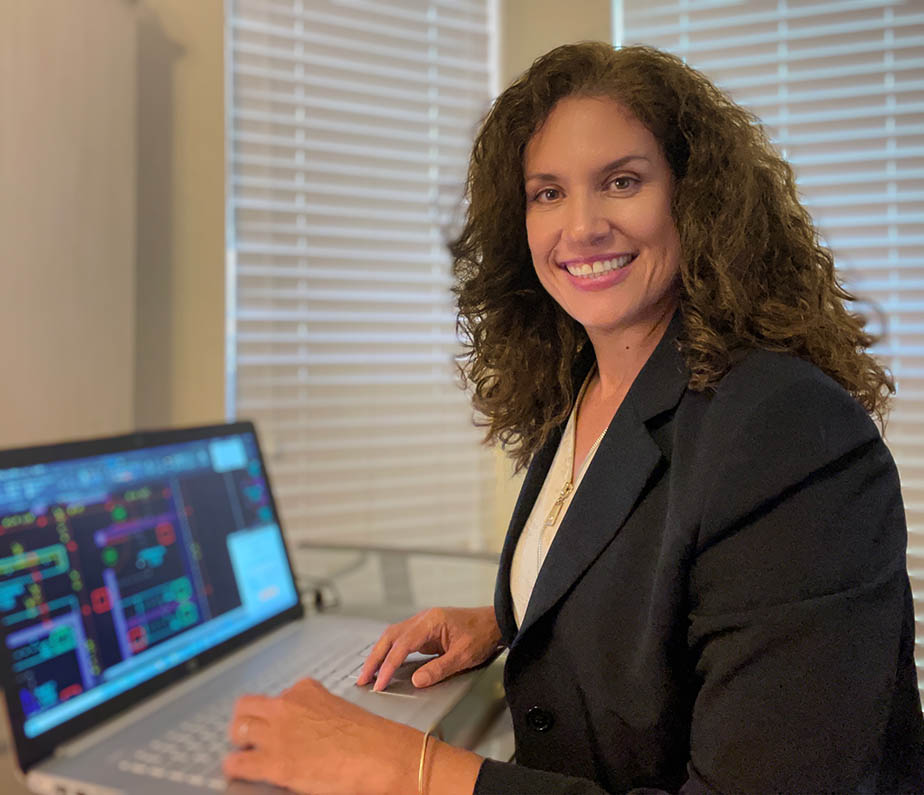
Lifestyle photography of library patrons ulilizing the libraries resources
Margine Biswas is the founder of Archiphy Architects (www.archiphy.com), a Dallas, TX-based commercial architecture firm. She believes that success comes from significant interaction between the client and the architect in all phases of design and processes. Client involvement is a significant factor in achieving the unique personality of a project. As a registered architect in the State of Texas, Margine brings experience in programming, master planning, and all phases of architectural design.
Before founding Archiphy, Margine worked at several Dallas architecture firms. She is fluent in English and Spanish and has sound notions of French and Italian. She has traveled extensively around the world including Australia, India, Mexico, Central America, Europe, and many more.
TV1 News recently caught up with Margine to discuss her journey as an etrepreneur and here’s what went down:
When did your entrepreneurial flair first reveal itself?
My first entrepreneurial adventure happened when I was in 2nd grade and my uncle gave me a box of cookies. I decided to sell the cookies at school. With the profits, I bought a box of gum and with that profit, I bought two boxes of gum and sold them.
How did your life look like before being an entrepreneur?
It was a process. After completing the architectural degree I started the required internship program. The purpose of this program is to give candidates the skills and knowledge for independent architecture practice. The next step to earning architectural licensure was completing a series of exams. The Architect Registration Examination (ARE) is a test of candidates’ abilities and overall knowledge of architecture practices and principles. After passing the ARE I was able to start my own practice.

As an entrepreneur, what is it that motivates and drives you?
I like to see the environments we design come to a reality. It is very rewarding to see our clients’ visions and dreams come true.
In one word, describe your life as an entrepreneur and explain why.
Rollercoaster because as an entrepreneur you want to create new heights and overcome challenges. Sometimes the ride becomes normal for a while, but soon you are back up on the ride. Sometimes the ride is faster, higher, and more intense. You reach the top frightened, but excited, not knowing exactly what comes next.
What were your top three motivations for starting your business?
Following my passion, controlling my time, and servicing the community

What do you put your success down to?
Perseverance in the face of the unknown.
What would you say are the key elements for starting and running a successful business?
Business planning is key to understanding your business goals. It gives a plan of action and a clear concept for financial management, sales, and marketing strategies.
What are the three biggest challenges you have faced growing the business and how did you overcome them?
Learning when to delegate – I realized it is important to shape the ideas of others instead of dictating their path.
Finding the right talent – Employees and consultants are essential to the success of a company. Through referrals and social networking, I’ve been able to find the right person for the job.
Keeping up with unforeseen challenges – From dealing with the COVID pandemic to a winter storm, unforeseen circumstances require foresight. You must be flexible to quickly adjust and manage the unexpected.
Does the loneliness of the entrepreneur really exist?
For me, there has been alone time, but not loneliness. I think loneliness means that you are disconnected from others. Sometimes you need to be alone to get to know yourself, your ideas, and your passions.
As you grew the business, what have been some of the most important leadership lessons you have learned?
Small habits lead to big results. Keep a list of your big goals and break them into smaller ones. The small goals can be divided among members of the team. Big results come from the small goal done consistently.
What do you hope to see happen in the near future for small businesses all over the world?
Efficiency through virtual productivity. There are a lot of opportunities to use new technologies more effectively with virtual teams.









